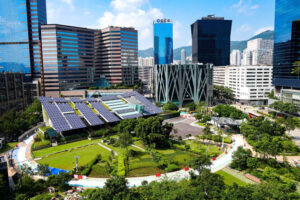Modern life seems to increasingly frustrate those of us who like nice, neat simple answers to complex questions. Frank Bruni from the New York Times editorial staff offers wonderful advice for all of us from his opening remarks to his students each semester:
“I’m going to repeat one phrase more often than any other: “It’s complicated.” They’ll become familiar with that. They may even become bored with it. I’ll sometimes say it when we’re discussing the roots and branches of a social ill, the motivations of public (and private) actors and a whole lot else, and that’s because I’m standing before them not as an ambassador of certainty or a font of unassailable verities but as an emissary of doubt. I want to give them intelligent questions, not final answers. I want to teach them how much they have to learn — and how much they will always have to learn.”
We have all been bombarded by a simple message: we must reduce/eliminate carbon dioxide emissions … and therefore our use of fossil fuels. We have villainized natural gas, coal, and oil as demons to the planet wellbeing … and indeed the wasteful and/or irresponsible use of these is wrong.
I am now seeing clear signs that the media is picking up on the “rest of the story” that goes far beyond carbon dioxide. The link here offers a more inclusive perspective … it is a nice start to a dialogue about what we should be doing in response to the fullness of the issues.
What If Carbon Emissions Are Not the Real Problem?
The problem of course is that anything as complex as this doesn’t lend itself to an easy political fix. It is messy and requires educated political agents and voting public, both of which we sorely need.
Whenever I try to engage in this conversation I am confronted by blank stares … with no fundamental knowledge of the fullness of the supply and demand process of keeping us comfortable and safe in our homes and our transportation methods.
Yes, there are those who want to go back to sailing to move goods around the world, but those are the same tokenisms that recycling advocates want us to believe are part of the future.
No, we need to go back to the basics and question why we are doing things in the first place. We are irresponsibly extracting non-replaceable resources with no hope of sustainability over time.
Let’s hit the restart button on the conversation and begin with some solid education rather than resting on superficially appealing notions.
